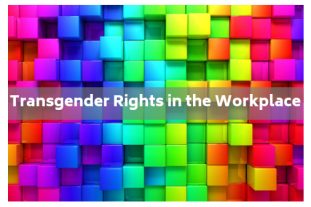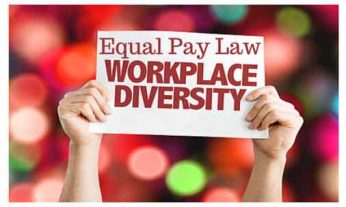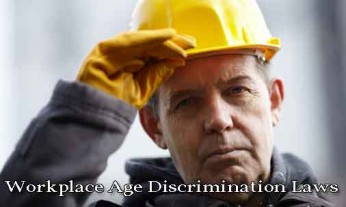 Transgender rights are human rights. According to Amnesty International, transgender individuals are the recipients of casual discrimination on a daily basis. In fact, they undergo as many as 60 instances of discrimination or harassment every single day. While many of these indiscretions are made without malice, or even unknowingly (such as using a pronoun other than the one the transgender person identifies with), they still take a toll on the transgender community. California lawmakers have taken deliberate steps to provide protections for transgender workers. The goal is to reduce and even eliminate instances of harassment and/or discrimination in the workplace that is based on gender identity, sex, or gender expression. The rights of transgender individuals in the workplace are important to the health and safety of the worker, fellow employees, employers, and the business itself.
Transgender rights are human rights. According to Amnesty International, transgender individuals are the recipients of casual discrimination on a daily basis. In fact, they undergo as many as 60 instances of discrimination or harassment every single day. While many of these indiscretions are made without malice, or even unknowingly (such as using a pronoun other than the one the transgender person identifies with), they still take a toll on the transgender community. California lawmakers have taken deliberate steps to provide protections for transgender workers. The goal is to reduce and even eliminate instances of harassment and/or discrimination in the workplace that is based on gender identity, sex, or gender expression. The rights of transgender individuals in the workplace are important to the health and safety of the worker, fellow employees, employers, and the business itself.
Posting the Transgender Rights Poster
All employers with one or more employees must post the California Department of Fair Employment and Housing poster regarding workplace rights for transgender individuals. The poster clarifies any questions employers and their employees may have as to some specific rights for transgender employees.
Parity in Restroom Facilities – Transgender Rights
All employees are entitled to feel safe in restrooms, locker rooms, and similar facilities. Individuals who are transitioning and/or who are transgender have particular protections when it comes to restrooms in the workplace.
- California standards ensure that employees are allowed to use the facilities that correspond with their gender identity.
- Single-occupancy restrooms must be identified as gender-neutral with signs that label the room as such.
- It is the choice of the transgender individual whether to use a single-occupancy restroom or a general use restroom that is designated as either male or female. Employers do not have the right to force transgender individuals to use the single use facilities exclusively.
When are Transgender Rights Protections Viable?
The California Fair Employment and Housing Act provides protections from harassment and discrimination for transgender individuals, among others. These protections apply to hiring, wages, opportunities for training and promotions, lay-offs, firing, and retaliation. They protect transgender workers before, during, and after social, legal, and physical transitioning.
Social Transition
Individuals undergoing social transition may not be discriminated against for the issues such as following:
- Changes in attire;
- Alterations in hairstyle;
- Preferences for different pronouns.
Physical Transition
Transgender individuals who undergo hormone therapy and/or surgery may not be discriminated against during or after therapies and treatments that change the physical body of the individual.
Legal Transition
At the culmination of the social and physical transition, transgender individuals may ultimately be required to undergo a legal name change, which may, in turn, result in updates to social security cards, driver’s licenses and other identification, birth certificates, and additional important documents. These changes should not result in workplace penalties. [Read more…]







